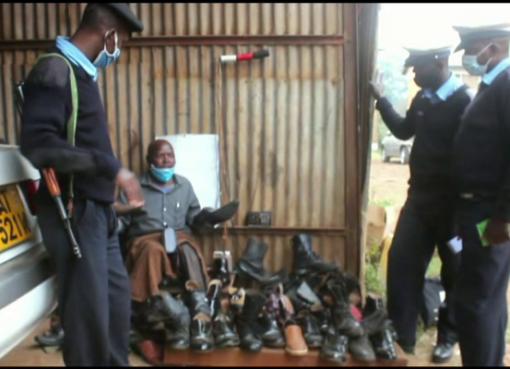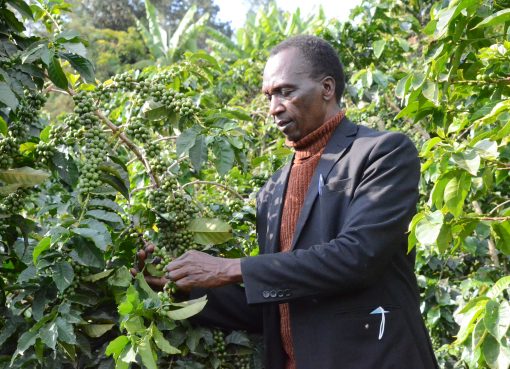Nakuru County Government has instituted measures, to boost water storage and improve sanitation aimed at addressing perennial water shortage across the County and the city environs.
Chief Officer for Water and Sanitation, Engineer Margaret Kinyanjui, said the County Government was prioritizing development of water infrastructure aimed at meeting the rising water demand and fill the supply gap so as to increase the number of households accessing clean and safe water.
The chief officer disclosed that the County was entering into public-private partnerships aimed at revamping its aged wastewater treatment and sewerage systems.
She highlighted the importance of this collaboration in tackling recurrent water challenges adding that they were focused on strengthening their efforts in collaborating with stakeholders and finding innovative solutions to improve water accessibility and hygiene standards.
Eng. Kinyanjui said as the County endeavours to achieve the right to clean and safe water in adequate quantities, there was need to recognize and implement the requirements of the Constitution of Kenya 2010, Article 43 provision which guarantees reasonable standard of sanitation, freedom from hunger, and safe water in adequate quantities.
Speaking when she held discussions with a delegation from Tigal Water Splash Organization, the chief officer indicated that fixing the water demand and supply gap would reduce production costs and spur investment and job creation in the sector.
Eng. Kinyanjui said that the focus of the engagement with the partners was the rehabilitation of the United Nations International Children’s Emergency Fund (UNICEF) funded water projects in Molo, Kuresoi North, and Kuresoi South Sub-Counties.
She explained that the water projects were initiated in 2007 -2008 to provide clean water to communities, but over time, some water pumps failed due to mechanical breakdowns adding that Tigal Water Splash Organization in collaboration with the County Government, had now launched a program to repair and restore the water supply systems to their full capacity.
Tigal Water Splash (TWS) is a non-profit organization that works to provide clean water and sanitation to communities in Kenya and beyond. The organization’s mission is to improve health and human well-being through community development.
The Chief Officer who was accompanied by her Environment and Climate Change counterpart, Kennedy Mungai, voiced the County government’s commitment to expanding the scope of water coverage, enhancing sustainability of projects.
She asserted there was need for understanding on the role of every stakeholder in water, environment, sanitation and climate change sectors adding that they were offering support to water utilities to ensure proper management of water projects which in turn will translate into good service delivery.
Among the projects the county government has prioritized for rehabilitation in order to alleviate water shortage in Nakuru are the last mile water pipe connectivity to rural households from Itare Dam and the expansion of Turasha Dam in Gilgil to bolster water supply to Gilgil Sub-County and Nakuru Town.
The county water supply demand is estimated to be 70,000 cubic litres per day, yet data from Nakuru Urban Water and Sanitation Company, NAWASCO, indicates that the current supply stands at 40,000 cubic litres, yet the town’s status already elevated to a City.
The County Government has also partnered with Vitens Evides International which is providing technical assistance to the Nakuru Water and Sanitation Services Company Ltd (Nawasco), Nakuru Rural Water and Sanitation Company Limited (Naruwasco) and Naivasha Water, Sewerage and Sanitation Company Ltd (Naivawasco) to reduce non-revenue water from an average of 54 per cent to 20 per cent.
A Non-Revenue Water (NRW) audit revealed that Nawassco, Naruwasco and Naivawasco lose more than half of their treated drinking water to leaks, theft and meter inaccuracies, resulting in monthly losses of over Shs40 million.
Non-Revenue Water (NRW) is water lost through illegal connections, inefficient or rundown supply infrastructure and malfunctioning meters.
The World Health Organization (WHO) estimates that sub-Saharan Africa loses an equivalent of four percent of its GDP as a result of inadequate water supply and sanitation.
By Esther Mwangi





